There’s a tradition among the Dawei people, an indigenous group on Myanmar’s southeast coast, that on each full moon, they give up violence by giving up meat and fish. The early morning fish market that usually stretches down the wide sandy beach in San Hlan village is nearly empty. This monthly ritual acknowledges and honors the things we assume will always be there, the resources that sustain these communities.
On the full moon in early December, however, the We Love Dawei festival brought over 3,000 artists, community leaders, families, tourists, youth groups, and government officials together in Dawei for a celebration of the local culture and natural environment. A day of music, food, discussions, and dancing highlighted the strength of the Dawei community and the power of their voices.
These voices and this power are always there, but for a community like Dawei, as with any people who face a tide of damaging development projects, it’s vital that we help celebrate them. Solidarity in celebration, not just in crisis.
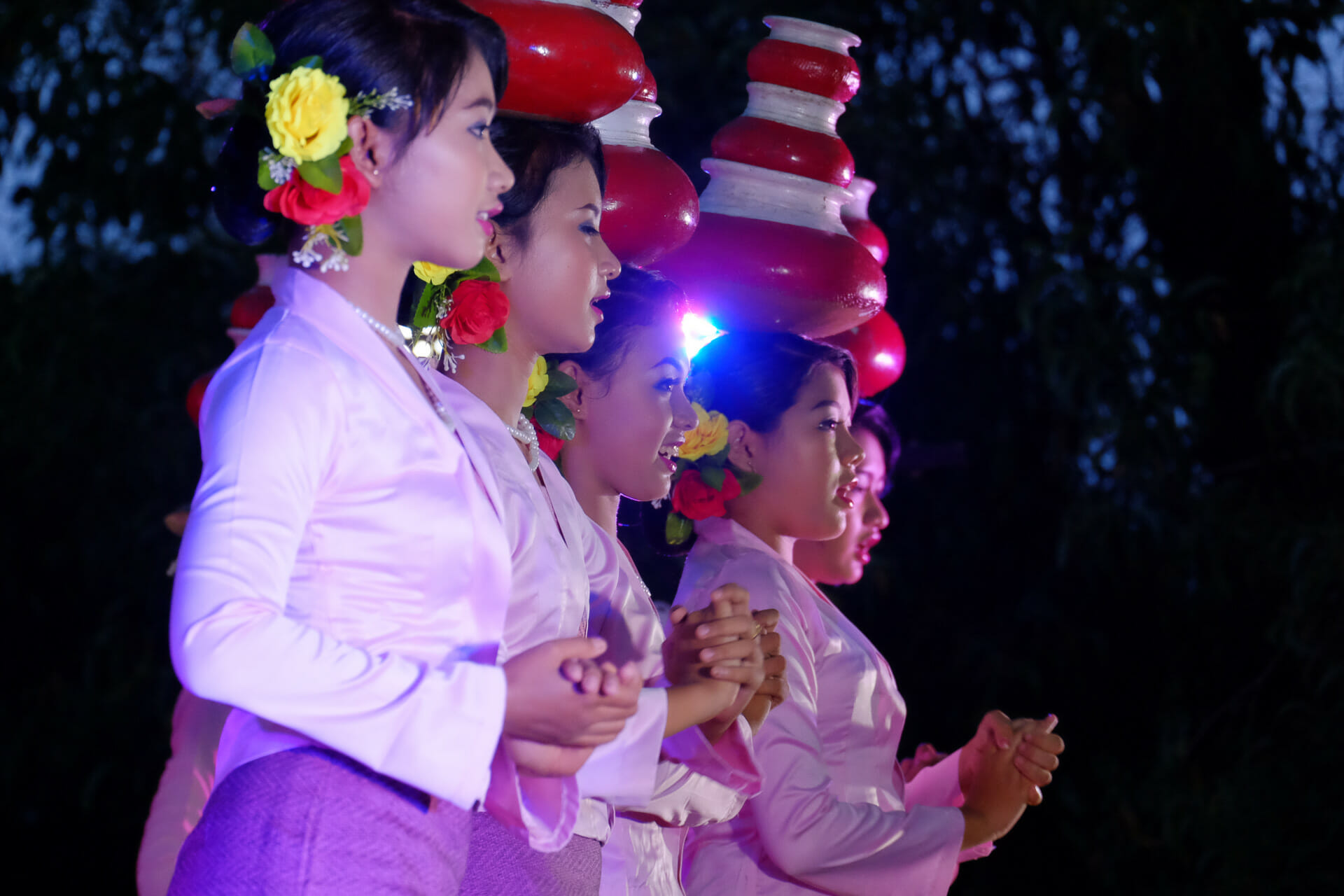
A group of Dawei women perform a dance with pots balanced on their heads.
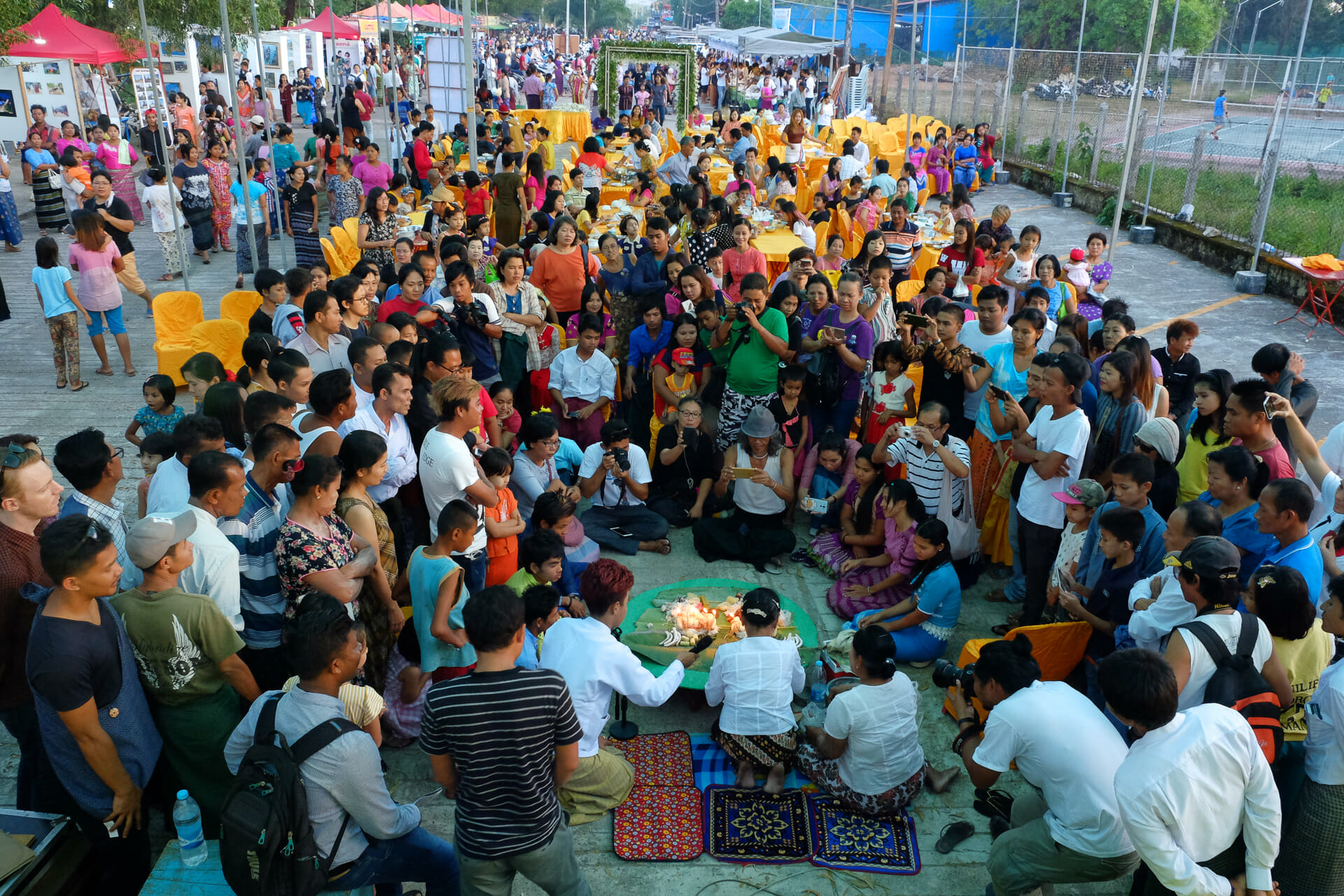
A Dawei spiritual leader conducts a traditional prayer ceremony at the festival.
When a Community Owns Its Own Narrative
Any headlines about Dawei usually focus on the range of damaging development projects in the area: some not yet built, some already causing harm. This single story can dominate what we know about the place.
The Dawei Special Economic Zone (SEZ), now under construction, will include an oil refinery, petrochemical plants, other heavy industries, and a new highway. The coast just north of the San Hlan fish market would be covered with a deep-sea port. If built, the SEZ would be one of the largest industrial zones in Southeast Asia and directly affect 43,000 people. The Heinda Tin Mine, already built, has contaminated vital water supplies nearby with heavy metals and caused the entire Myaung Puio river to dry up.
But the We Love Dawei Festival celebrated an entirely different vision for the area: community-driven development and tourism, based on a powerful sense of pride. Musicians and dancers from Kalone Htar, a village that could be displaced by a dam reservoir to serve the SEZ, brought their indigenous music to the festival stage, followed by a women’s group performing a traditional dance while balancing pots on their heads. Art and photography exhibitions showed the people of Dawei as they are every day – farming, fishing, working. A spiritual leader conducted a traditional prayer ceremony at the festival, lighting candles across an offering of shrimp, coconut and bananas.
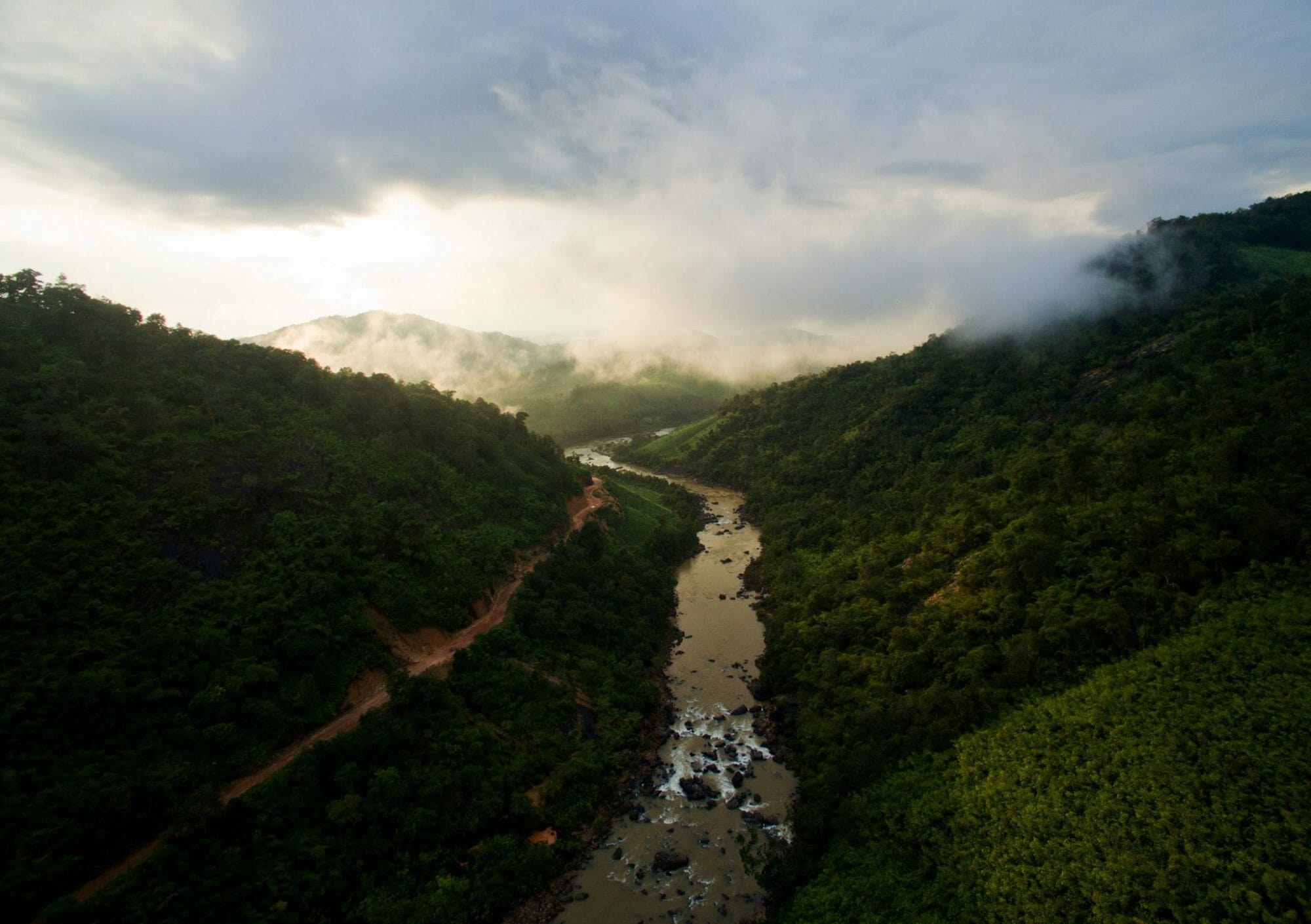
The Kalone Htar River in the Dawei area remains free-flowing but has been threatened by a large dam that would be used by Dawei Special Economic Zone.
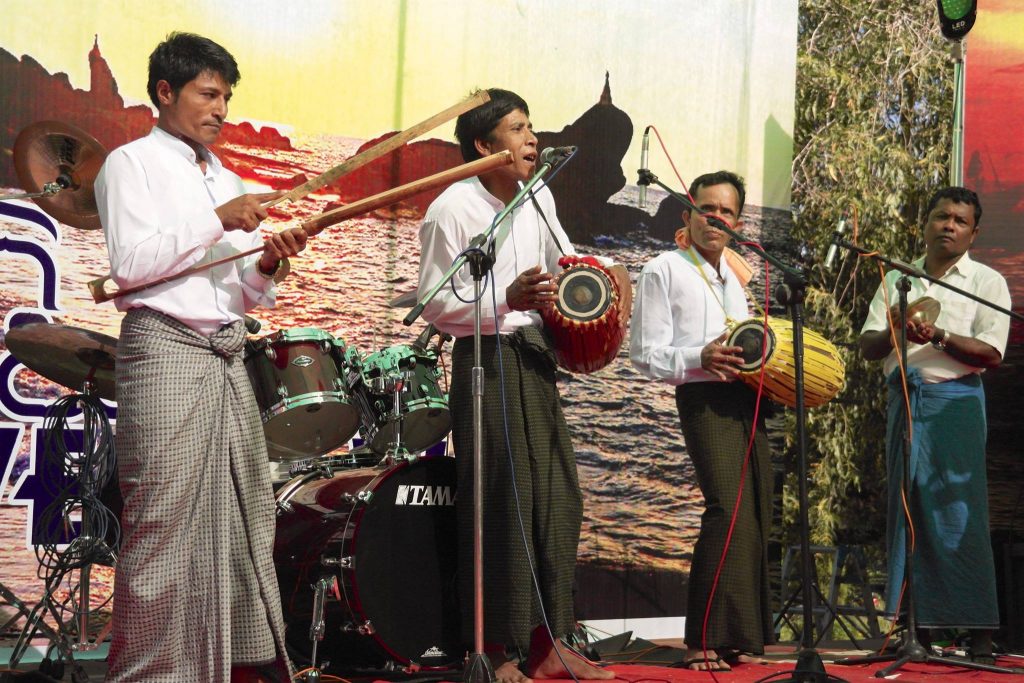
Musicians from the village of Kalone Htar perform at the We Love Dawei festival.
A Community is Not Only its Crises
Environmental and human rights allies are supporting Dawei communities in fighting human rights abuses. It’s an uphill battle that stretches from the National Human Rights Commission of Thailand to Myanmar’s legislature.
“Listen to the people on the ground.” That’s what advocates always say when a dam or a mine threatens a community with injustice. The community on the front lines gets portrayed by the media, advocates and donors as vulnerable. Consciously or not, we start to act as if the people affected are “in-need” or somehow weak. This creates the very same power dynamic that the earth rights movement is fighting against.
It takes intention and effort to counteract this. It’s vital that we celebrate the power of these communities: the power that’s always there. It’s this power of the people that sustains the earth rights movement.

Dancers from the Dawei village of Kalone Htar perform the traditional story of Shwe Yoe.
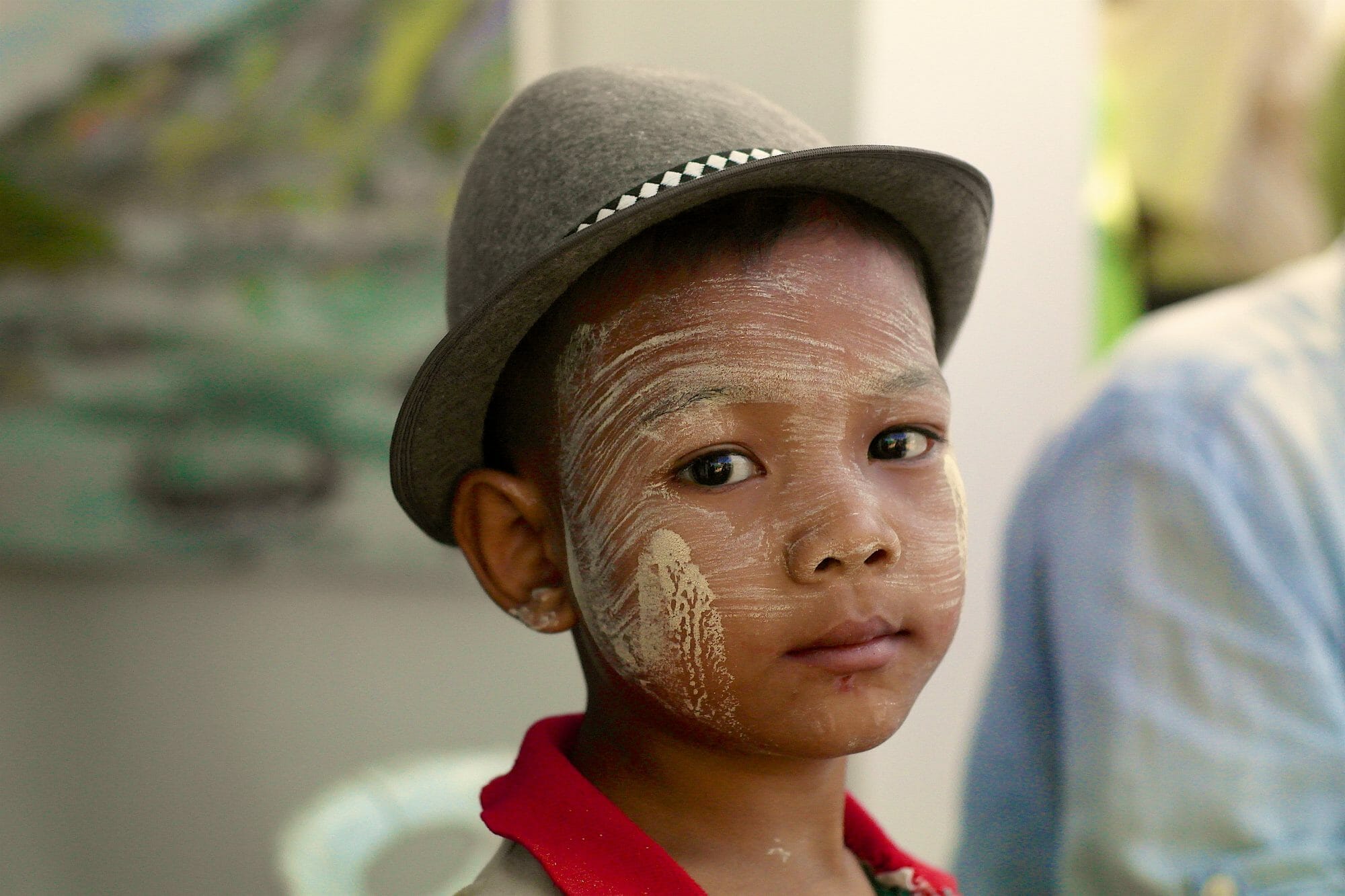
The We Love Dawei festival brought together young and old generations to celebrate their community.
A Lesson in Resilience
There’s a lot of talk about building resilience among social justice and human rights advocates. But the people of Dawei already know how to build resilience. This powerful display of community pride is what it looks like in action.
We Love Dawei was organized by a diverse civil society coalition, showing off the strong networking that goes into building any deep movement. Local community-based organization Dawei Development Association and a group of Tavoyan* migrant workers in Bangkok collaborated with Spirit in Education Movement (SEM), a Thailand-based civil society group. Together, they built a coalition representing 25 organizations.**
This type of deep network-building is essential. Local groups talk with their communities and organize their response to a case of earth rights abuses. International allies listen to and amplify these local voices. Sometimes this means supporting villagers in Heinda as they file a human rights complaint over the mining company’s actions.
At We Love Dawei, SEM brought a delegation of almost 40 Thai supporters to the festival – journalists, photographers, painters and performance artists. Exhibitions of their work showed a profound respect for Dawei. One of the performance artists carried an oversized megaphone, wearing a shirt that read, “Please say anything you want to say,” and encouraging anyone and everyone to speak up. International allies met the people on the front lines of development on their own terms, letting local voices show that they’re already strong. They’ve built their own capacity.
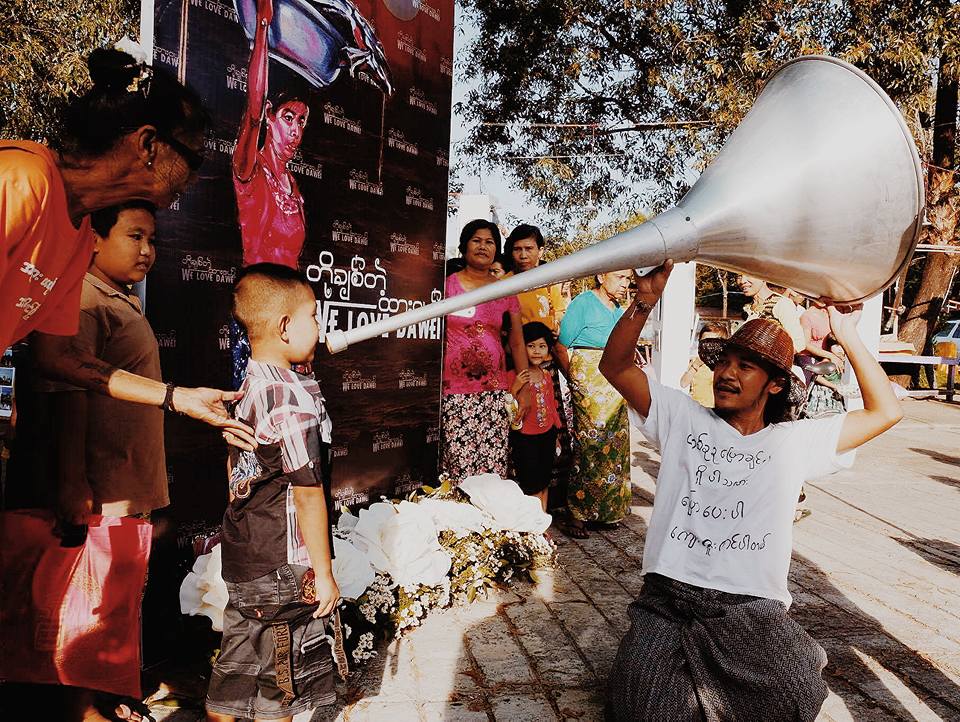
A Thai performance artist with a boy from Dawei at the festival.
Local Drive, Regional Momentum
People in Dawei have found natural allies in their Thai neighbors to the east. Many Thai communities once stood at the same crossroads where Dawei is today: Thailand has seen many of its coastal communities damaged by industry, but also by unchecked tourism. Dawei sits on the Andaman Sea, the same stretch of ocean as tourist mega-destinations Krabi and Phuket. The potential benefit to the community is huge, but so is the risk. The Thai delegation recognized how important it is for people in Dawei to own their own future – they were also keenly aware that development projects that lead to human rights violations in Myanmar are backed by Thai businesses.
The Thai allies at We Love Dawei composed a statement of solidarity and shared it on the festival stage:
“Though abundant in the past just like Dawei, Thailand has now lost its natural abundance… as a result of the uncharted developmental onslaught and the irrecoverable damage. On behalf of sisters and brothers in Thailand who have been exposed to the pristine and abundant nature of Dawei, we would like to express our respect for the traditional way of life in Dawei. Also, we appreciate the healthy natural environment and want to share our concern about the incoming changes. This is not dissimilar to what has happened in our country…
Dawei can then set an example of an important tourist attraction with visitors who have not just been here, but [been] inspired by the effort of the people in Dawei in terms of their cultural and environmental conservation.”
(Read the full statement here)
The Thai supporters of the Dawei communities will be there when they struggle to get their voices heard by developers. But they also show up for Dawei on the good days, to honor the resources and the people power of this community.
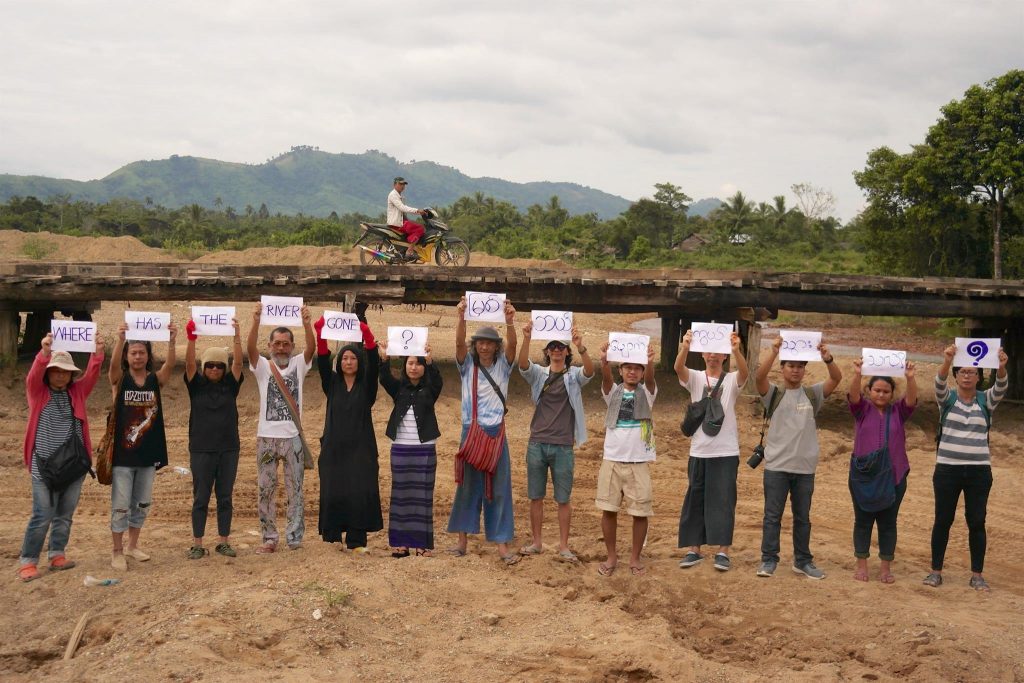
Supporters of the Dawei communities pose in the dry riverbed of the Myaung Puio River, asking “Where has the river gone?” (In Myanmar language (Burmese), “Myit bae pyauk twar thar hlae?”). Since the Heinda Tin Mine began operation nearby, the river has gone dry. Today, only irrigation channels remain.
For more photos of the We Love Dawei Festival, click here.
See this short film on Dawei that includes the National Human Rights Commission of Thailand’s visit to Dawei.
Learn about Dawei SEZ in the cases section of our website.
* Tavoy is an alternative spelling of Dawei. “Tavoyan” is a common demonym.
** The full list includes: Community Art Project, Dawei Research Association (DRA), Art and Language Center (ALC), Child Development Program, Dawei Probono Lawyers Association, Dawei Watch, Paungku, Tavoyan Women’s Union, ERI and other groups.






